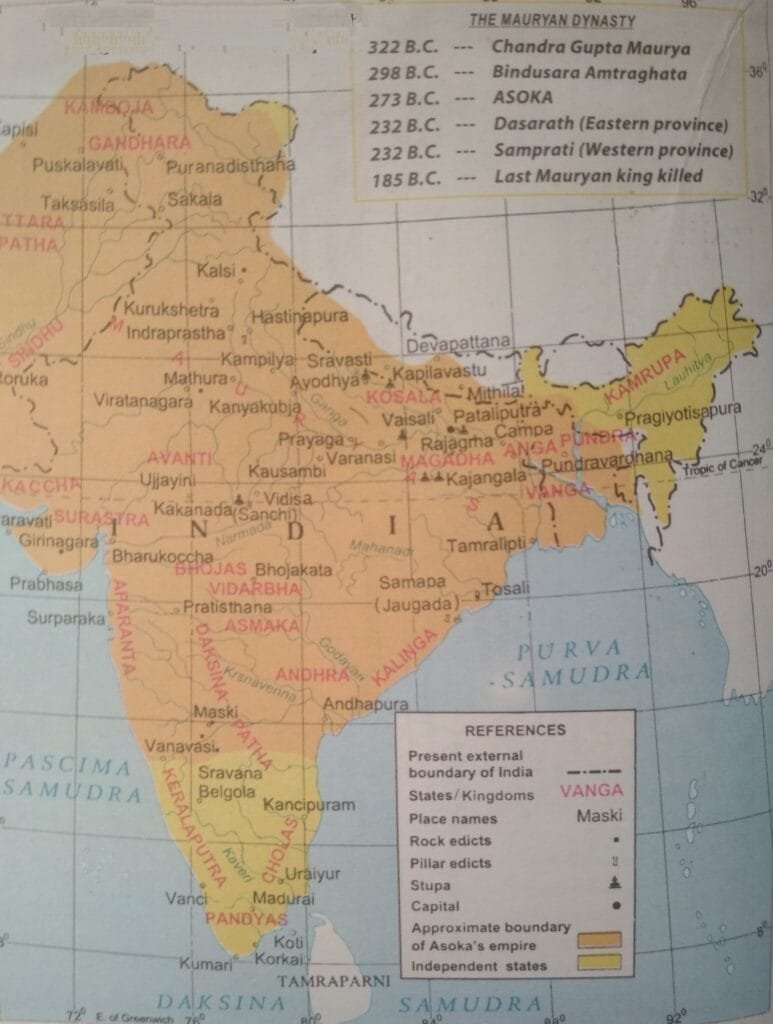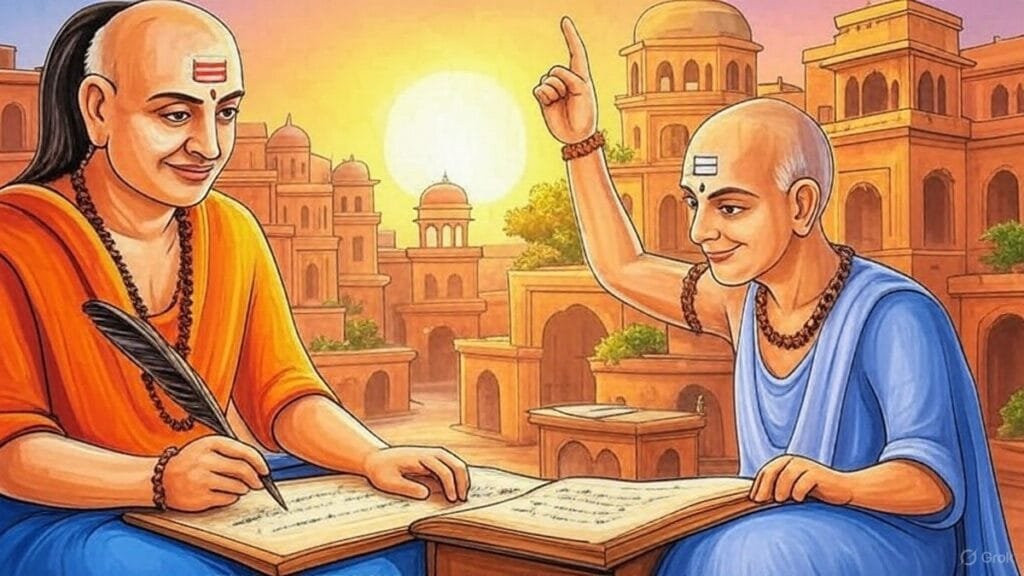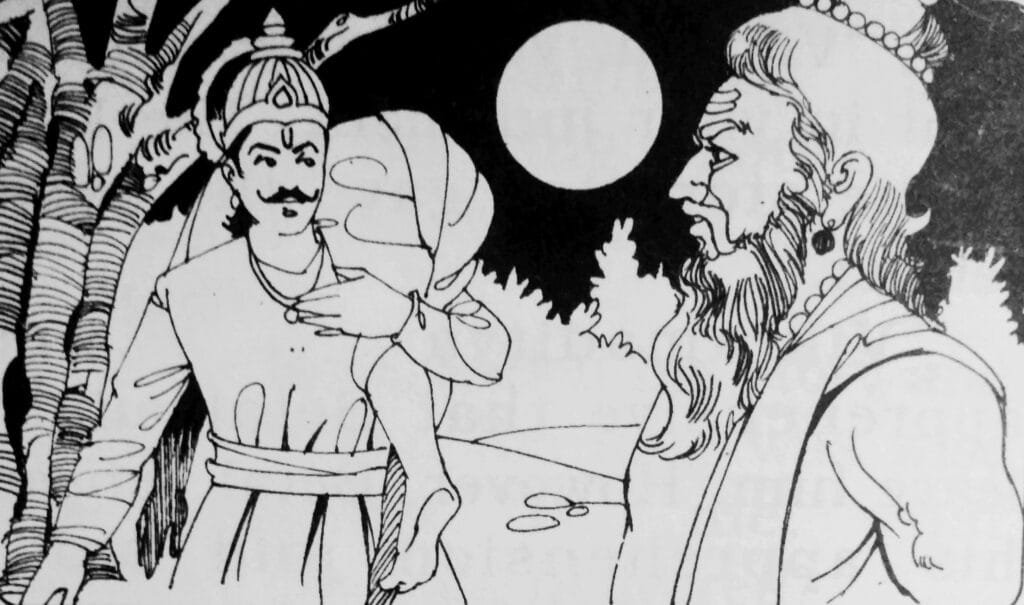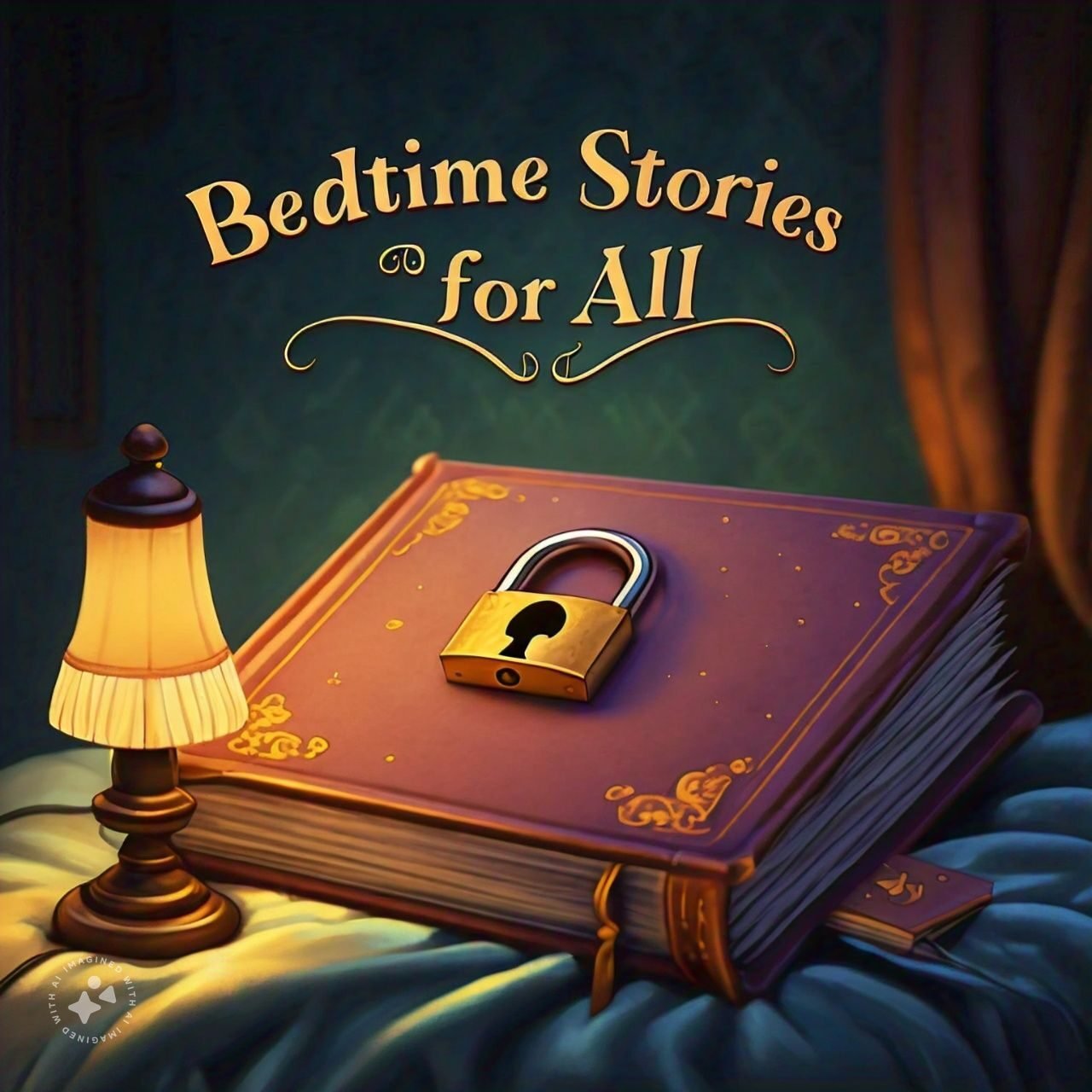With a weary exhale, King Vikramaditya neared completion of the sage’s peculiar task. The cremation grounds loomed ahead, where the old man awaited beneath a sickle-shaped moon. Only moments separated Vikram from fulfilling his promise—the thought lightened his stride.
Beneath his sandals, parched leaves crackled like the breaking of tiny skeletons. The sage’s command whispered through his memory: “Deliver Betal before the moon crowns the night.”
Just then, the Betal upon his shoulder stirred. “Forgive my impertinence, noble king,” Betal’s voice slithered into the silence. “Though my tales are spent, our final steps together beg for celebration. One last riddle—for old times’ sake? You’ve solved all others with such… delicious cleverness.”
Vikram adjusted his grip on the shroud-wrapped body. “Very well, Betal. Speak your puzzle.”
“Attend closely,” Betal murmured. “This story carries the fragrance of ancient wisdom…”

Betal began his riddle-filled story:
In the annals of ancient India, when empires rose and fell like monsoon tides, the great Mauryan dynasty first took root under Chandragupta Maurya’s iron will. The empire flourished until one auspicious season when the royal courts buzzed with anticipation – Crown Prince Bindusara was to wed Dharma, a noblewoman of the Moriya Kshatriya lineage. She came from the river-kissed city of Champa, barely a day’s journey from the imperial capital Pataliputra (what we now call Patna), where the scent of champak flowers perfumed the palace corridors during wedding preparations.

The royal court hummed with activity—ministers debating, petitioners waiting, the scent of sandalwood incense curling through pillared halls—when the guards announced an unexpected visitor. All eyes turned to the frail but fiery figure entering: Chanakya, the legendary scholar from distant Takshashila, his famous saffron robes worn thin by years of travel.
Chandragupta’s throne scraped against marble as he sprang up. “Gurudev!” The emperor’s voice cracked with uncharacteristic emotion as he clasped his old teacher’s hands. Servants scrambled to bring the finest cushions, ripe mangoes, and honeyed milk—honors reserved for royalty.

Only after the midday meal, when the last plates of sweetmeats were cleared, did Chandragupta lean close. “Teacher,” he murmured, “what urgent matter brings you from the halls of Takshashila University to our humid Magadhan plains? The Gandhara road is long and dangerous these days.”
Chanakya’s fingers, stained with the ink of countless manuscripts, tapped restlessly on his walking staff. “When the foundation stones of Takshashila begin to crack,” he said, his voice low but urgent, “should the architect not return to inspect the pillars?” or “When termites eat the beams of one’s house, a wise man doesn’t wait for the roof to fall.” His eyes burned with urgent intelligence. “I’ve come from Gandhara because certain… matters demand your attention.”

Chandragupta’s calloused hands – still bearing scars from his warrior days – came together in the anjali mudra as he bowed deeply. His voice, though accustomed to battlefield commands, softened with genuine reverence:
“Gurudev, the debt I owe your wisdom can never be repaid. When you found me – a boy chasing cattle in the fields – who could imagine I’d wear the Mauryan crown?” His fingers unconsciously touched the lion emblem on his gold armband. “Command me as you once taught me to command armies. My empire’s wealth, my soldiers’ lives, even the jewels from Bindusara’s wedding chest – all are yours to wield.”

The aging scholar’s eyes gleamed with something between pride and amusement. He reached out, his own scholar’s fingers – stained permanently with ink and herbal remedies – resting briefly on his pupil’s shoulder. “Still the eager shishya, I see. Very well…”
Chanakya’s voice dropped to a murmur, like a priest recounting an ancient prophecy. His knotted fingers tightened around his staff as he spoke:
“Blood binds us, Chandragupta—does the blood not sing between us? Your mother and mine were sisters who drew life from the same sacred well. My once-sturdy house where I wrote an Ancient Indian Sanskrit treatise called Arthashastra now creaks like an ancient chariot. Two faithful companions who never left my side now desert me in my twilight years. Two unwelcome visitors that I once kept at bay now sit at my hearth as constant guests. Before, I could do with only two; now, I need three.”
Dear Readers, solve this riddle before checking Vikramaditya’s answer! “The wise one is not he who knows the answer, but he who understands the question.” — Chanakya.

Betal’s eyes burned like smoldering coals as he fixed Vikram with an intense stare. “Answer me this, O King Vikram,” he challenged, his voice sharp as a newly whetted blade. “Chandragupta Maurya – a student of legendary Takshashila University, where the very stones whisper wisdom of Vedas and statecraft, where warriors learn the dance of swords and kings master the art of ruling – what meaning did he find in his guru’s riddle?”
Vikram’s eyes gleamed with quiet amusement as he pieced together the riddle. “Ah, Betal,” he said, his voice warm with understanding, “Chandragupta’s years at Takshashila sharpened his mind like a whetstone to a blade. The answer came to him swiftly.”

“First, the bond of blood—Chanakya, son of Narayani, goddess of hardship, spoke to his own cousin, Chandragupta, son of Lakshmi, goddess of fortune. For though one ruled an empire and the other lived humbly, their mothers were sisters in divinity as in life.”
“As for the riddle’s deeper meaning,” Vikram continued, counting off the points on his fingers, “the ‘beautiful house’ was Chanakya’s once-strong body, now bowed with age. His ‘two close friends’ – sharp eyes that once missed nothing and keen ears that caught every whisper – were failing him. Meanwhile, ‘two distant friends’ – the aches and frailties of old age – had become constant companions. And where once two legs sufficed,” he gestured as if leaning on a staff, “now a third support was needed to bear his weight.”
Finally, Vikram declared, “Aging is but the body’s manuscript slowly unfolding its final chapters.”

Betal was amazed by Vikram’s reply and praised him wholeheartedly. “You are an absolute gem, and your answer is spot on once again,” Betal said. “It’s been a pleasure to be part of this journey with you, Vikram. I don’t know if we’ll ever meet again.”
Betal then cautioned Vikram, saying, “Now you have to cover only a little distance to reach the crematorium. However, again I warn you that the sage for whom you are taking me is a devil. He is using you to increase his devilish strength. After keeping me in his captivity, he will kill you too. Beware of him! You are a noble soul and a great ruler. I don’t want you to fall prey to such an evil man.”
King Vikramaditya listened intently to Betal’s warning but remained silent. Soon after, he arrived at the crematorium, where the sage sat before a crackling sacrificial fire, engrossed in his rituals. The king placed the corpse at the sage’s feet and declared, “Your Holiness, I have kept my promise—Betal is yours.”

The sage’s eyes lit up with delight. Raising his hands in blessing, he exclaimed, “Long live the king! May the gods grant you prosperity, wisdom, and the strength to rule your kingdom for ages to come!”
The sage swiftly dismembered the corpse that Betal had inhabited, offering its pieces to the sacrificial fire to fuel his dark powers. Once the ritual was complete, he turned to the king with a deceptive smile. “Now, noble Vikramaditya,” he said, “bow before the sacred flames and receive your reward.”
Though the king complied, his grip tightened on the hilt of his hidden sword. The moment Vikramaditya bent forward, the sage’s eyes gleamed with malice—he seized his own blade, aiming to sever the king’s head in one stroke.

But Vikramaditya’s instincts were sharper. In a flash, he sprang up, steel gleaming in the firelight, and with a single stroke, the sage’s lifeless body fell to the ground instead.
The moment the sage’s lifeless body hit the ground, the air itself seemed to shake with thunderous laughter. Startled, Vikramaditya whirled around – only to see a radiant young man standing a few paces away, his face alight with amusement.
“O mighty king,” the youth spoke, his voice like wind chimes, “I am Betal, finally free from that wicked sage’s grasp. By ending his life, you’ve broken my chains forever.” His eyes sparkled with gratitude as he bowed deeply. “For this, you have my eternal thanks.”

Vikramaditya’s brow furrowed as he studied the radiant youth before him. “Tell me, Betal,” the king demanded, his voice laced with both curiosity and command, “what power did that wicked sage hope to gain by keeping you captive?”
Betal’s expression darkened, his voice carrying the weight of centuries. “That wicked man was no sage—he was my own elder brother. Once, we shared blood; then, he traded his humanity for dark arts. With his occult power, he twisted my soul into this spectral prison, binding me to his will.”
A bitter smile touched his lips. “He sent you to fetch me not just to enslave me further, but to sacrifice you at that very fire. Your death would have fueled his magic, granting him the strength to seize your kingdom and drown it in shadow.”

Then, his gaze softened with reverence. “But destiny chose you, King Vikramaditya. By ending his reign of terror, you’ve freed me—and saved countless lives. Today, you’ve become more than a ruler… you are a slayer of demons, a protector of the innocent.”
Betal fell silent for a moment, his luminous form flickering like candlelight in the night air. When he spoke again, his voice carried a note of solemn gratitude. “Great Vikramaditya, I must beg your forgiveness. Though my countless escapes caused you endless trials, never did I intend you hardship. My purpose was nobler – to test the razor’s edge of your wisdom through each tale I spun.”
He continued, his tone warming with admiration, “Every story I wove was a mirror to human life, each riddle a jewel waiting for your keen mind to uncover. And like the sun dispelling shadows, your answers illuminated truths that would humble even the gods. Your brilliance transformed my simple puzzles into profound lessons for all who might hear or read them.”

Betal raised his hands in benediction, his form glowing with an otherworldly light. “Hear now, O Vikramaditya, and receive this gift: the tales we’ve woven—your wisdom, my riddles, the very words that passed between us—shall be etched into eternity. They will grow like the sacred banyan, their roots deepening through time, their branches sheltering generations yet unborn.”
His voice resonated like a temple bell: “Those who hear these stories shall drink from the well of your insight and find clarity in their darkest hours. Kings and peasants alike will carry them in their hearts as lanterns against ignorance. This is my boon—may your legacy be not just in crowns conquered, but in minds awakened.”

A profound stillness settled between them as Vikramaditya absorbed Betal’s words. The king bowed his head, his voice thick with emotion. “This boon is greater than any kingdom’s treasure,” he said. “Your gift will make my people wiser than any army could make them strong.”
Betal’s form began dissolving like morning mist touched by sunlight. “Farewell, noble king,” his voice echoed, growing fainter. “My earthly bonds are released. But your legend – your name shall ring through the ages as long as storytellers draw breath.” With one final shimmer, he vanished, leaving behind only the whisper of his blessing on the wind.

As Betal’s luminous form dissolved into the night air, a sudden hush fell over the cremation ground. The very earth trembled as a radiant light manifested – and there stood Lord Shiva, his matted locks crowned with the crescent moon, his third eye glowing with divine approval. The scent of sacred ash and jasmine filled the air as the Destroyer spoke:
“Vikramaditya,” his voice resonated like a thousand temple bells, “today you wielded your sword as Dharma itself. That demon wore ochre robes, but his heart was blacker than the darkest kaliyuga night. In slaying him, you have purified the earth and earned a place among the righteous kings of legend.”
Shiva’s smile held the warmth of a million suns as he raised his trident in blessing. “Your name shall be sung in my temples, for you have served both man and gods this day.”
Shiva’s voice resonated like a sacred bell: “Vikramaditya, I shaped you from my own essence to vanquish this age’s darkness. You are my divine hand upon earth.”

A sword blazing with blue flame materialized before the king. “With this blade of cosmic justice, rule until the mountains crumble to dust.” Shiva’s third eye flashed. “Let your reign shine as Dharma’s lamp – where you walk, let tyranny tremble.”
As the king grasped the weapon, Shiva dissolved into swirling smoke, his final whisper lingering: “Now go, and let the world behold its perfect ruler.”
As Vikramaditya crossed the gates of Ujjain, the city erupted in joyous celebration – streets overflowed with dancing crowds, temple bells rang incessantly, and the sweet scent of marigolds filled the air. The people knew their king had not just won a battle, but saved their very souls.

His subsequent reign became the stuff of legend, weaving justice with compassion so perfectly that poets called it “Ramarajya reborn.” Such was his legacy that for centuries after, any ruler who matched his valor and wisdom was crowned with the sacred title ‘Vikramaditya’ – transforming a name into an eternal standard of kingship.

I hope you enjoy reading Betal Pachisi as much as I’ve enjoyed writing it. If you know any publishers, please share my work with them—they might find it intriguing, as I’ve woven these stories with creativity, historical knowledge, and love. I truly believe that one day, my work, especially this series, will be printed by a publisher who approaches me with an offer.
After all, always dream big—dreaming small is a crime.
- 14 Best Panchatantra stories in hindi
- 15 Best Children Stories in English from Panchatantra 2.0
- 16 Best Aesop's Fables in Hindi with moral lessons
- 17 Best Aesop's Fables with moral lessons for children
- Arabian Nights
- Author's Best Written Stories in English
- Author's Best Written Stories in Hindi
- Baital Pachisi बैताल पचीसी in Hindi
- Bedtime Stories for All
- Hindi Love Stories
- Love and Romance
- Vikram and Betal series: Riddle Solving Stories
You can join my WhatsApp Channel by clicking the link here


